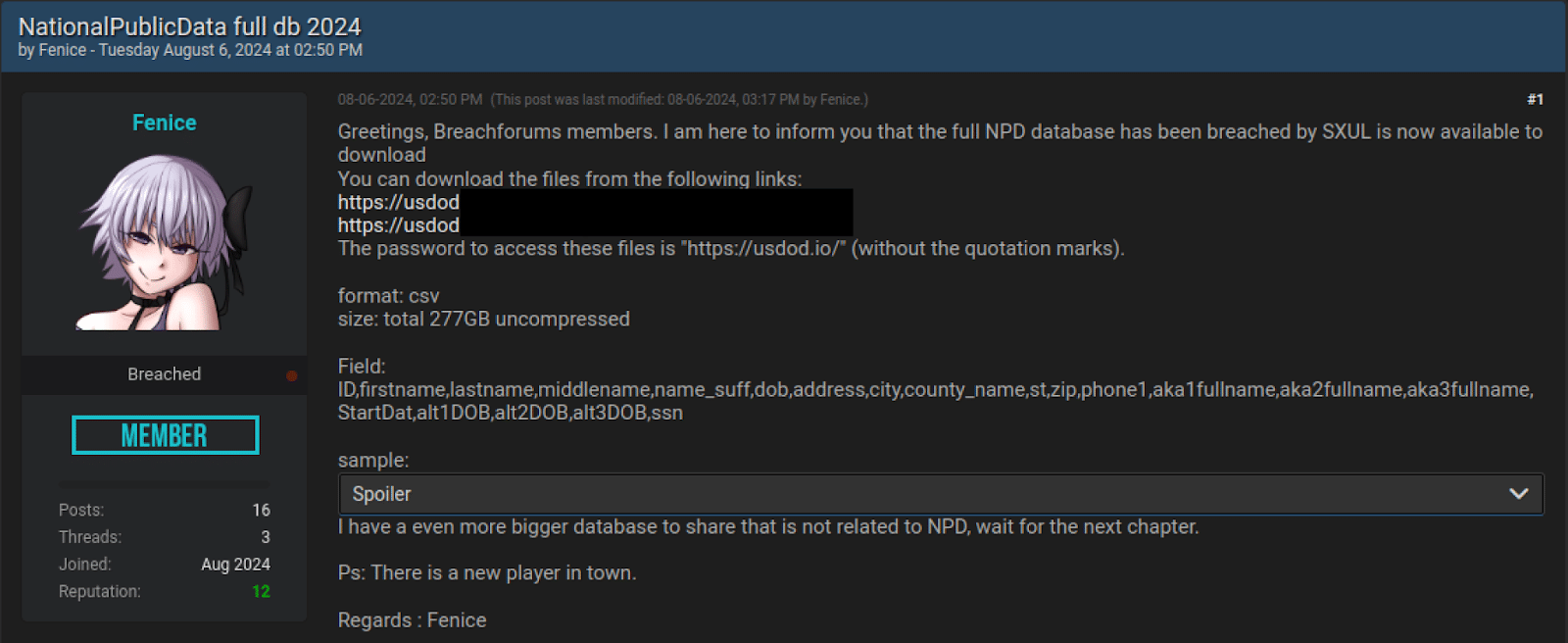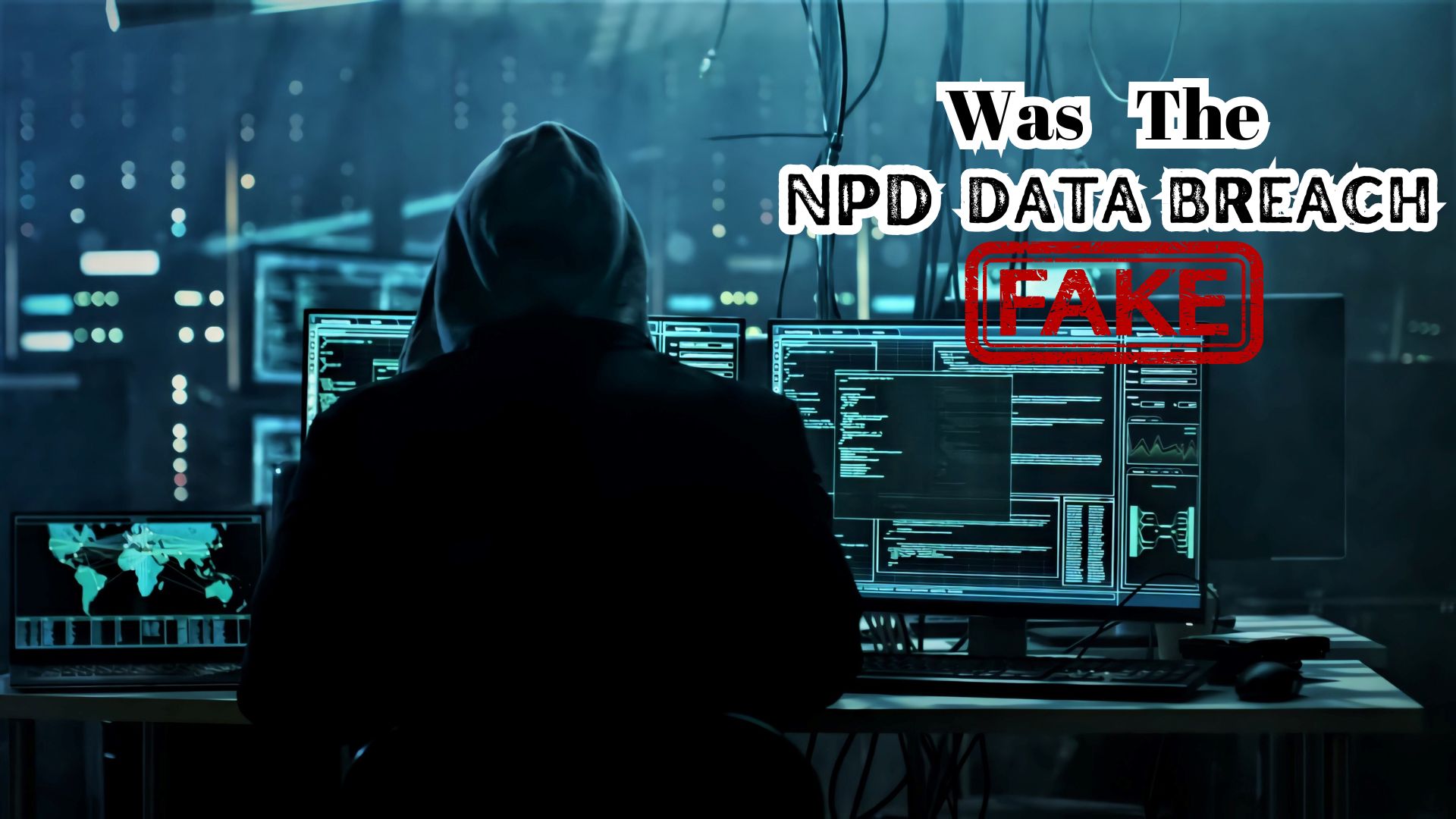In recent months, the National Public Data (NPD) breach has stirred up quite a storm and ignited intense discussions regarding its legitimacy and the motivations behind it. As data from approximately 2.9 billion records—spanning names, Social Security numbers, and other highly sensitive personal information—surfaced, skepticism about the breach’s authenticity has emerged. However, it’s essential to understand that there is no substantial evidence indicating that the NPD data breach was orchestrated as a ruse to entice individuals into signing up for various services.
NPD itself confirmed the breach, which traces back to December 2023, with various reports and investigations reinforcing its validity. Despite some parties attempting to exploit the situation to market their services, this does not mean that the data breach did not happen. It goes on to serve as a harsh reminder of the vulnerabilities in our data systems and the critical need for individuals to remain vigilant against potential scams and misinformation.
Understanding the Breach
The gravity of the NPD breach became evident when the hacker group USDoD advertised the stolen data for sale on the dark web in April 2024, demanding a staggering $3.5 million. What exacerbated the situation was that by mid-July, the information was publicly accessible, rendering it nearly impossible to control. As reported, many affected individuals were likely unaware that NPD had gathered their information in the first place. The company’s practice of extracting data from non-public sources without consent raises serious ethical questions, prompting vital discussions on how both public and private institutions manage Personally Identifiable Information (PII).

In the wake of this incident, a class action lawsuit against NPD emerged, with plaintiffs arguing that the company failed to protect their information adequately. Investigative reports uncovered troubling details, including the discovery of a sister website, RecordsCheck.net, which had exposed sensitive site logins and source code. This further highlights the concerning security lapses within NPD and its affiliated platforms.
Timeline of Events
An analysis of the timeline surrounding the breach reveals a troubling pattern:
- April 2024: USDoD begins selling the NPD data.
- July 2024: The breach is revealed to include over 272 million records, encompassing personal data from deceased individuals as well.
- August 12, 2024: NPD acknowledges the breach, attributing it to a security incident that transpired in December 2023. USDoD claims that the July leak stemmed from a hacker who accessed the NPD database, emphasizing that the data had circulated in underground forums since the original breach.
What Can Individuals Do?
Given the extensive exposure of personal data, individuals must take proactive steps to protect their identities:
- Monitor Your Accounts: Regularly review your financial statements and credit reports for suspicious activity. If you notice any unauthorized transactions, contact your financial institution immediately.
- Sign Up for Identity Theft Protection: Consider enrolling in reputable identity theft protection services. Companies like LifeLock and IdentityForce provide monitoring services that can alert you to any unusual activity involving your personal data.
- Freeze Your Credit: Placing a credit freeze with major credit bureaus (Equifax, Experian, and TransUnion) can prevent new accounts from being opened in your name without your consent.
- Utilize Free Credit Reports: You can obtain a free copy of your credit report once a year from each of the three major credit reporting agencies at www.annualcreditreport.com. Regularly checking your credit report can help you spot issues before they escalate.
- File a Fraud Alert: A fraud alert on your credit report can warn potential creditors to take extra steps to verify your identity before extending credit.
- Report the Breach: If you believe you are a victim of identity theft, report it to the Federal Trade Commission (FTC) and file a police report with your local law enforcement.
The Organizational Responsibility to Prevent Identity Theft
As the fallout from the NPD breach unfolded, there was a notable uptick in consumer engagement with credit monitoring and identity protection services. This proactive response is commendable, demonstrating that individuals are increasingly aware of the need to safeguard their identities. Yet, it underscores the necessity for organizations to handle sensitive data with utmost care and integrity.
To mitigate the risk of identity theft, companies must adopt rigorous fraud prevention measures and adhere to compliance frameworks designed to protect against data misuse. By fostering trust and ensuring that customer identities are verified, organizations can bolster consumer confidence and reduce the likelihood of future breaches.
Caution with Post-Breach Services
Following the leak, numerous websites emerged, purporting to assist individuals in checking if their data had been compromised. While these services may seem convenient, they often require users to input sensitive personal information, potentially heightening the risk of further exposure. Experts recommend that individuals exercise caution and consider proactive steps such as:
- Freezing Credit Reports: Contact major credit bureaus to prevent unauthorized new accounts.
- Monitoring Credit Reports: Utilize free weekly reports to keep an eye out for suspicious activity.
Learning from the NPD Breach
The NPD incident serves as a poignant reminder of the paramount importance of robust security and identity verification practices within organizations. The extensive exposure of personal data illustrates the severe repercussions that can arise from inadequate safeguards.
Moving forward, it is imperative that enterprises prioritize stringent security measures, effective identity verification protocols, and continuous employee training. Additionally, implementing incident response plans and maintaining thorough third-party risk management can significantly bolster defenses against future breaches.
While the narrative surrounding the NPD breach may invite skepticism, it is crucial to recognize the facts: this breach occurred, and its ramifications are real. Individuals must remain vigilant, but organizations must also step up to protect the personal information they collect and manage. The collective responsibility to safeguard data is more significant now than ever, and proactive measures can help ensure that such breaches become less frequent in the future.



